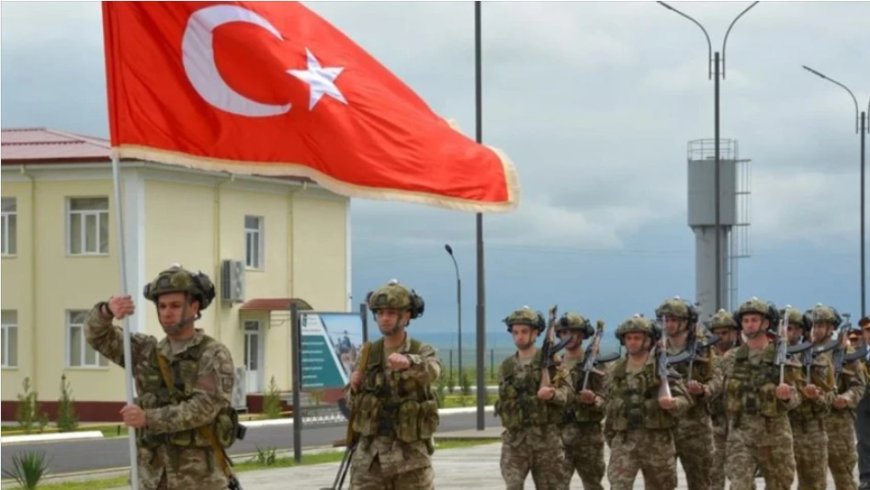Is the Trump–Putin peace track a dead end? Debate over peace force shifts spotlight to Turkey
Contradictory U.S.–Russia messages and Moscow’s rejection of a NATO presence stall peace-force ideas in Ukraine; with Europe wary of deploying troops, debate turns to whether a narrowly mandated, non-NATO Turkish role could be viable.

Is the Trump–Putin peace track a dead end? Debate over “peace force” shifts spotlight to Turkey
YUSUF İNAN / YEREL GÜNDEM / ANKARA
After Alaska: mixed signals and hard red lines
Following the Alaska encounter between U.S. President Donald Trump and Russian President Vladimir Putin, the promised momentum toward a ceasefire has not materialized. Their subsequent, at times contradictory, remarks have deepened uncertainty: while Washington talks up the prospect of rapid negotiations, Moscow reiterates that any deployment of a NATO-labeled presence in Ukraine is unacceptable. The gap between headline diplomacy and operative detail has widened, leaving the immediate future of talks clouded.
Who would guarantee a deal? Europe stays wary
A core design problem remains unanswered: which countries would underwrite and monitor any agreement on the ground. Across several EU capitals, both public opinion and opposition parties resist sending national troops to Ukraine—even under a peacekeeping or monitoring mandate. That reluctance narrows the pool of potential guarantors and complicates plans for a broad, coalition-based mission. In this climate, proposals for “political” guarantees without boots on the ground have gained attention but do little to solve the verification dilemma.
Ankara’s name keeps surfacing
With European capitals hesitant and Russia rejecting a NATO-branded mission, discussion has increasingly turned to Turkey. Ankara maintains open channels to both Kyiv and Moscow and has framed its role in regional crises as that of a facilitator. Advocates of a “Turkey option” argue that a Turkish-led, non-NATO deployment—if and only if both parties formally consent—could be more palatable to the Kremlin while preserving Ukraine’s need for an internationally recognized monitoring mechanism. Skeptics counter that any single-nation presence would face outsized operational and political risks without the deterrence and resources of a wider coalition.
What would “only Turkish troops” actually mean?
If a mission comprised solely of Turkish forces were considered, several constraints would define it:
-
Legal mandate: A UN Security Council resolution would be ideal but vulnerable to veto. Absent that, a trilateral or multilateral agreement (Ukraine–Turkey, and tacit or explicit buy-in from Russia) would be necessary to establish status, rules of engagement and geographic scope.
-
Limited tasks: The most realistic remit would center on ceasefire monitoring, separation-of-forces lines, mine action, incident investigation, and humanitarian corridors—not coercive enforcement.
-
Force protection and escalation management: A single-flag mission raises exposure risks. Robust self-defense rules, clear deconfliction channels with Russian forces, and reliable medical/airlift logistics would be essential.
-
Domestic and financial calculus: Any deployment would require parliamentary authorization, sustainable funding, and public support in Turkey—especially if the mission proved open-ended.
Narratives, claims, and realities
The peace debate has also become a battleground of narratives. Critics charge that Russia’s strategy has made Ukraine vulnerable while the U.S. and allies pursue geopolitical and economic interests; others counter that Moscow’s invasion is the root cause of the crisis and that Western backing aims to uphold Ukraine’s sovereignty. These competing claims shape perceptions of guarantor models but do not replace the practical prerequisites of any settlement: verifiable ceasefire terms and monitoring mechanisms that all sides can live with.
Outlook: not a dead end—yet, but very thin ice
For now, the combination of Russia’s opposition to a NATO presence, Europe’s troop-deployment caution, and the absence of a mutually agreed mandate keeps a peace force in the realm of theory. Turkey could become pivotal if the parties converge on a narrowly tailored, time-bound mission with transparent rules and credible deconfliction. Without at least a ceasefire and a clearly drafted mandate, however, any “guarantor” arrangement—Turkish or otherwise—risks overpromising and underdelivering.
Etiketler:
#Ukraine #peaceprocess #guarantees #Turkey #NATO #ceasefire #Alaska #diplomacy
YUSUF INAN / YEREL GÜNDEM





















